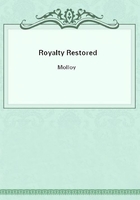
第110章 CHAPTER XIX.(1)
London under Charles II.--Condition and appearance of the thoroughfares.--Coffee is first drunk in the capital.--Taverns and their frequenters.--The city by night.--Wicked people do creep about.--Companies of young gentlemen.--The Duke of Monmouth kills a beadle.--Sir Charles Sedley's frolic.--Stately houses of the nobility.--St. James's Park.--Amusement of the town.--At Bartholomew Fair.--Bull, bear, and dog fights.--Some quaint sports.
During the first six years of the merry monarch's reign, London town, east of Temple Bar, consisted of narrow and tortuous streets of quaintly gabled houses, pitched roofed and plaster fronted. Scarce four years had passed after the devastating fire which laid this portion of the capital in ashes, when a new and stately city rose upon the ruins of the old. Thoroughfares lying close by the Thames, which were wont to suffer from inundations, were raised; those which from limited breadth had caused inconvenience and bred pestilence were made wide; warehouses and dwellings of solid brick and carved stone, with doors, window-frames, and breastsummers of stout oak, replaced irregular though not unpicturesque habitations; whilst the halls of companies, eminent taverns, and abodes of great merchants, were now built "with fair courtyards before them, and pleasant gardens behind them, and fair spacious rooms and galleries in them, little inferior to some princes' palaces." Moreover, churches designed by the genius of Christopher Wren, adorned with spires, steeples, and minarets, intersected the capital at all points.
This new, handsome, and populous city presented an animated, ever changing, and merry scene. From "the high street which is called the Strand," far eastwards, great painted signs, emblazoned with heraldic arms, or ornamented with pictures of grotesque birds and animals, swung above shop-doors and taverns. Stalls laden with wares of every description, "set out with decorations as valuable as those of the stage," extended into the thoroughfares. In the new Exchange, built by the worshipful company of mercers at a cost of eight thousand pounds, and adorned by a fair statue of King Charles II. in the habit of a Roman emperor, were galleries containing rows of very rich shops, displaying manufactures and ornaments of rare description, served by young men known as apprentices, and likewise by comely wenches.
At corners and nooks of streets, under eaves of churches and great buildings, and other places of shelter, sat followers of various trades and vendors of divers commodities, each in the place which had become his from daily association and long habit.
These good people, together with keepers of stalls and shops, extolled their wares in deafening shouts; snatches of song, shouts of laughter, and the clang of pewter vessels came in bursts of discord from open tavern doors; women discoursed with or abused each other, according to their temper and inclination as they leaned from the jutting small-paned windows and open balconies of their homesteads; hackney coaches or "hell carts,"as they drove by, cast filth and refuse lying in kennels upon the clothes of passengers; the carriers of sedan-chairs deposited their burthens to fight for right of way in narrow passages and round crowded corners.
Through the busy concourse flowing up and down the thoroughfares from dawn to dusk, street-criers took their way, bearing wares upon their heads in wicker baskets, before them on broad trays, or slung upon their backs in goodly packs. And as they passed, their voices rose above the general din, calling "Fair lemons and oranges, oranges and citrons!" "Cherries, sweet cherries, ripe and red!" "New flounders and great plaice; buy my dish of great eels!" "Rosemary and sweet briar; who'll buy my lavender?""Fresh cheese and cream!" "Lily-white vinegar!" "Dainty sausages!" which calls, being frequently intoned to staves of melody, fell with pleasant sounds upon the ear. [These hawkers so seriously interfered with legitimate traders, that in 1694they were forbidden to sell any goods or merchandise in any public place within the city or liberties, except in open markets and fairs, on penalty of forty shillings for each offence, both to buyers and sellers.] Moreover, to these divers sights and sounds were added ballad singers, who piped ditties upon topics of the day; quacks who sold nostrums and magic potions; dancers who performed on tight-ropes; wandering musicians; fire-eaters of great renown; exhibitors of dancing dolls, and such like itinerants "as make show of motions and strange sights," all of whom were obliged to have and to hold "a license in red and black letters, under the hand and seal of Thomas Killigrew, Esq., master of the revels to his sacred majesty Charles II."Adown the Strand, Fleet Street, and in that part of the city adjoining the Exchange, coffee-houses abounded in great numbers.
Coffee, which in this reign became a favourite beverage, was introduced into London a couple of years before the restoration.